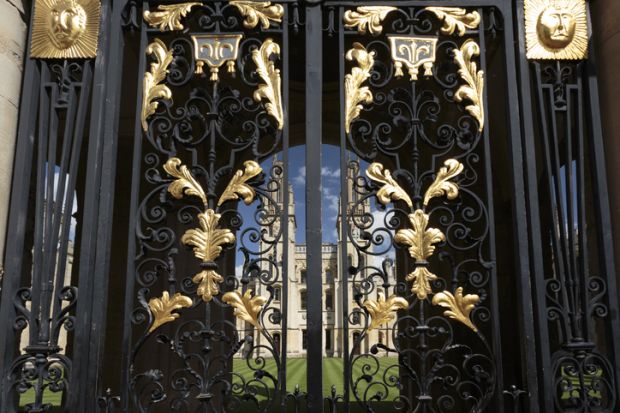The Westminster government’s apparent plan to restrict the number of people entering English universities is driven by Eton and Winchester-schooled “elitists” who want to “hold on to power”, according to Labour’s shadow higher education minister.
Matt Western, speaking to Times Higher Education during the Labour conference in Brighton, also said that the party remains committed to abolishing tuition fees in England, as he looks ahead to responding to government plans for higher education set to be unveiled as the spending review concludes on 27 October.
Labour’s higher education funding policy at the 2017 and 2019 elections, under former leader Jeremy Corbyn, was to abolish fees and reintroduce maintenance grants – a policy that Mr Western said remained in place.
“We are committed to removing loans – we just don’t see that as the right way to go,” he said. “We’ve got to rethink: what is the value of higher education? Are we personalising the value of education to the individual, or are we considering it in the round; the contribution to society and the economy and culturally? I think it [should be] the latter. I really don’t like this contractualising, transactionalising education, full stop.”
Asked if the party leadership remained committed to abolishing fees, he reiterated: “We are committed to getting rid of HE fees.”
On maintenance funding – where grants have been scrapped and replaced by loans under the Conservatives – he said that the issue was “something I really want to have a close look at now”, to “have an internal debate within the party about what we could do, because I think that’s a crucial issue, particularly for social mobility”.
One key element of the government’s spending review appears to be to lower the threshold for student loan repayments, which Mr Western said would be “a very negative thing, because it will really impact very unfairly and it will impact particularly on women graduates and graduates who emerge on low incomes”. Minimum entry requirements to qualify for student loans in higher education, at GCSE level, are also on the table. The latter policy appears to have a direct aim of reducing the numbers entering higher education, while the former may have that effect too.
When it unveils its response to the Augar review of post-18 education at the spending review, the government is likely to bill itself as prioritising the “forgotten 50 per cent” who do not attend university, and perhaps characterise Labour’s policy for fully publicly funded higher education as an expensive subsidy for largely middle-class graduates. How would Mr Western respond to that?
“I think it’s pretty extraordinary from a government which is full of elitist individuals who went to Eton or Winchester, in the case of the prime minister and the chancellor, and then went on to Oxford or wherever,” he said. “It seems to me that they don’t care for social mobility, they don’t care about opportunity.
“I think this is again an example of culture wars. I think they believe higher education is the preserve of the few. I believe it’s not; it should be an opportunity for all.
“The idea that they want to limit access to higher education I think is a very backward step. I look at more progressive societies and successful economies – and they are not going in that direction, they are increasing numbers.”
He added: “These people, 100 years ago, would have been against you and me having the vote. They want to hold on to power. They want to minimise access.”
Register to continue
Why register?
- Registration is free and only takes a moment
- Once registered, you can read 3 articles a month
- Sign up for our newsletter
Subscribe
Or subscribe for unlimited access to:
- Unlimited access to news, views, insights & reviews
- Digital editions
- Digital access to THE’s university and college rankings analysis
Already registered or a current subscriber? Login








